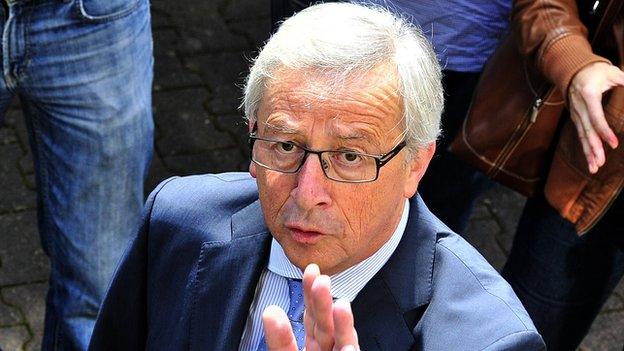The real Jean-Claude Juncker
- Published
- comments
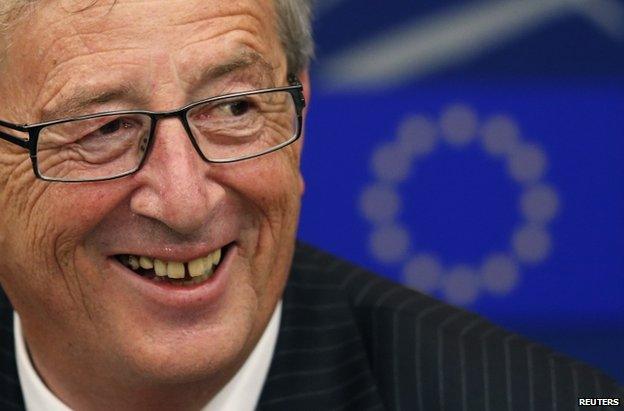
In the end Jean-Claude Juncker's anointment as Europe's most powerful official came with moments of theatre.
When Mr Juncker made an impassioned defence of the euro - "the single currency didn't split Europe... it defends Europe" - there were howls of derision from the UKIP benches. Nigel Farage weighed in saying that "nobody knew him" and that his name had "appeared on no ballot paper".
Shortly afterwards Marine Le Pen was telling the former Luxembourg prime minister, "You weren't elected by the people… we'll fight you and your institutions."
But this was political knockabout. Mr Juncker knew he had the votes. The Liberals ensured he got 422 votes, 46 more than he needed.
Today - perhaps - we saw the real Jean-Claude Juncker, not the emollient vote-seeker doing the rounds of the parliamentary groupings last week.
Passionate
Firstly, he is passionate in defence of the single currency which he described as an "affair of the heart".
While some argue that yoking such disparate countries with the same currency has sowed division and paved the way to mass unemployment, he would have none of it. Without the euro, he said, countries were pitted against each other.
He was prepared to lie in its defence. "When things get serious," he said, "you have to know how to lie."
As Commission president he will legislate to "deepen our economic and monetary union".
The BBC's Chris Morris says Mr Juncker's priority is growth and jobs in Europe
Secondly he may be a conservative but, as Daniel Cohn-Bendit once remarked, Mr Juncker has been the "most socialist Christian Democrat". He told the parliament today that the internal market was not more important than social affairs.
He described himself as a champion of the social market economy - but he said it would only work with social dialogue. He called for a "re-industrialisation of Europe". He came across as an activist, interventionist president with an ambitious programme of investment, mobilising a 300bn-euro (£239bn; $408bn) war chest over the next three years to be invested in key projects.
He said the growth and stability pact - which limits deficits to 3% and debt to 60% of GDP - would not be altered but flexibility would be explored in order to boost growth. And mindful of the damage done by austerity in countries like Greece, he vowed that no bailout programme would be introduced without assessing the social impact in advance.
Last week and again today he insisted he was not a federalist and had never used the words "a United States of Europe" but then he eulogised another Commission president, Jacques Delors: "He is my friend, my mentor. He inspires me every day." Jacques Delors was one of the architects of the euro.
Dreamer
Mr Juncker will take up his new office in November full of ambition. He envisages
a digital single market
an energy union with the aim of becoming the world number one in renewable energy
a trade deal with the United States which does not "sacrifice Europe's safety, health, social and data protection standards"
He comes across as pragmatic, a man who says he wants a fair deal for Britain but, inside, the fires burn brightly for the European project. He will not allow a watering down of the key pillars like the free movement of people which he regards as an integral part of the internal market. He is very much a man who sees himself as continuing to build the European home.
Whilst he was listening to the speeches, I saw Mr Juncker looking down at his mobile pone. At that moment my own phone announced that Lord Hill would be nominated as the UK's next EU commissioner. In fact Mr Juncker had been given the name the night before by David Cameron.
In Strasbourg almost no one had heard of Lord Hill. There was a desperate online search to define him. In the corridors of the European Parliament there was much shaking of heads. Why once again was it asked had Britain not put forward a big political hitter, a Neil Kinnock, a Peter Mandelson or a Chris Patten?
Some questioned whether it was a tacit acceptance in London that the UK would not land a top economic post like the internal market or trade.
It was being said in government circles that Lord Hill was a good political fixer, who had set up a PR business and who had ably been the leader of the House of Lords when the Conservatives did not have a majority.
Jean-Claude Juncker over the next two months will decide in consultation with the member states who gets what posts.
He will not want to do anything that pushes the UK towards an EU exit but neither will he compromise what he called today the "European dream".
- Published15 July 2014
- Published15 July 2014
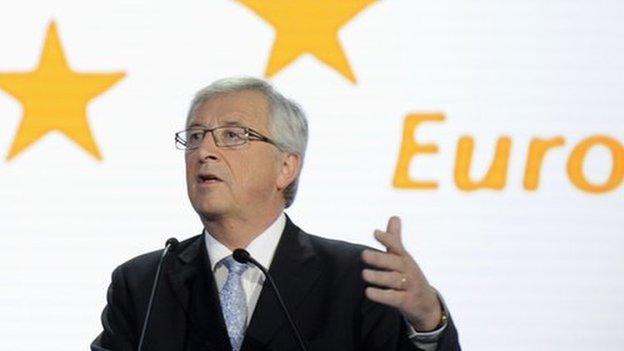
- Published15 July 2014
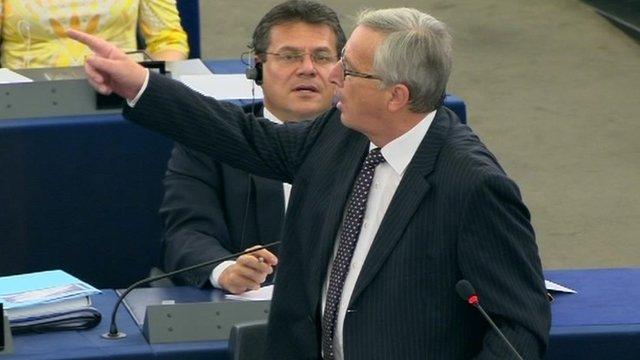
- Published14 July 2014
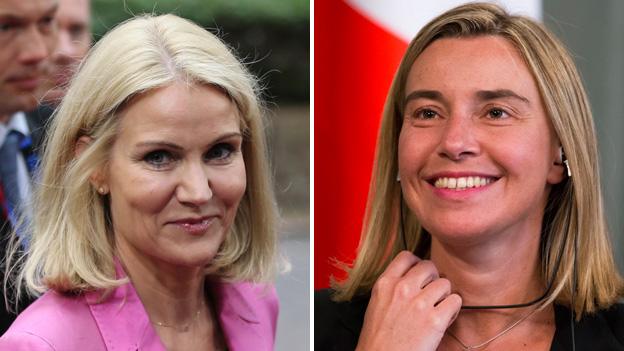
- Published27 June 2014
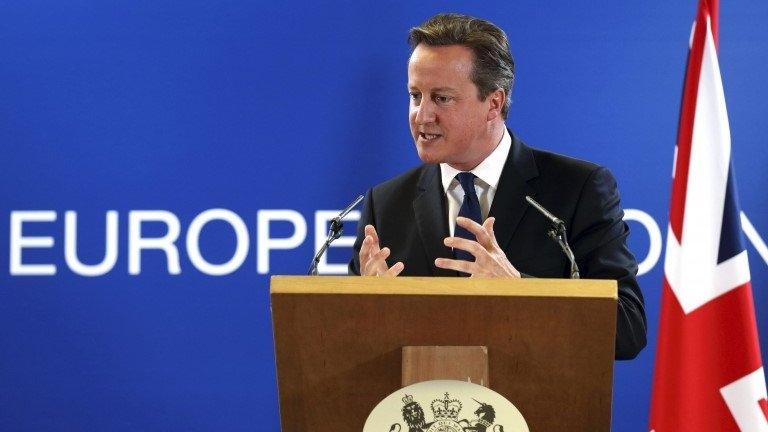
- Published26 June 2014
- Published24 June 2014
